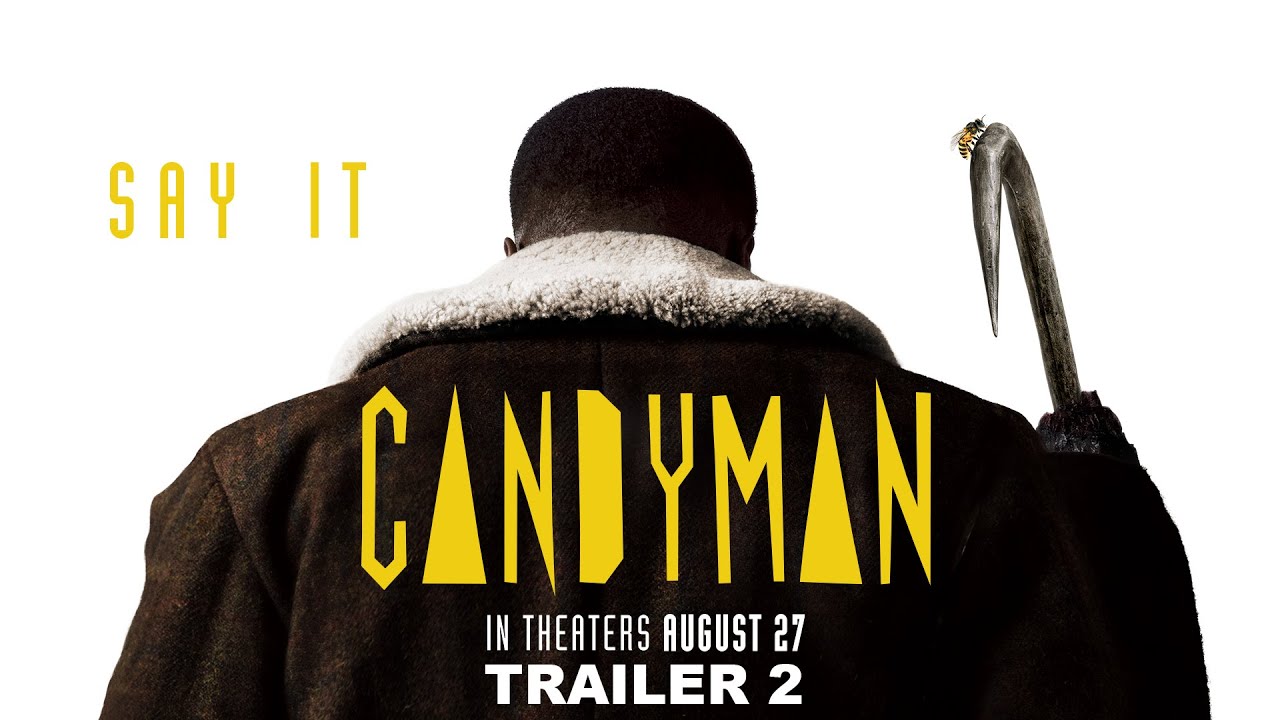
‘Candyman’: What you need to know about the original fright fest
‘Candyman’: What you need to know about the original fright fest



Welcome to the Candy-verse, the wide world of all things Candyman — in theaters Friday. But Universal’s upcoming slasher flick from director Nia DaCosta is hardly new to the horror scene; the original Candyman came out in 1992 and remains a cult hit to this day.
Directed by Bernard Rose, the 1992 film follows Helen Lyle (Virginia Madsen) a graduate student researching urban legends in Chicago. Her studies lead her to Cabrini-Green, a public housing development haunted by stories of Candyman — a man who was lynched in the late19th century for falling in love with a wealthy white woman. Candyman’s hand was cut off by the white mob, and now he uses the hook in its place to murder countless innocents.
DaCosta’s take on the legend (co-written with Jordan Peele and Win Rosenfeld) is actually a sequel, so here’s what you need to know before it hits theaters.
Uh, yeah, it’s about race
Just in case Jordan Peele’s involvement had you confused; Get Out was about race, Us was explicitly not, and Candyman very much is. The original Candyman has been pored over by Black film scholars since its release, but was brought into the world by white creators. Candyman wasn’t even Black in Clive Barker’s short story “The Forbidden,” which the film was based on. Rose cast actor Tony Todd, and Todd himself fleshed out the character’s tragic backstory.
The 2021 sequel hands the story over to Black artists, who bring the last 30 years of cultural shifts and analysis to the table. Candyman now weaves together police brutality, gentrification, micro aggressions, and more.
Mirror, mirror
The legend from the film goes that if you say Candyman’s name five times in the mirror, he’ll appear behind you and kill you. The new film doesn’t hide that white people in particular feel this specific and perverse fascination with invoking terror and bloodshed. Troy (Nathan Stewart-Jarrett) states it plainly in the 2021 trailer: “Black people don’t need to be summoning shit.”
A promo campaign for the film encouraged people to say “Candyman” five times to unlock the final trailer, and many simply refused. Yet Helen and so many other white people (in both films) say the name, knowing that it might summon him, and perhaps hoping deep down that it will. Mirrors hold the key to finding and unleashing Candyman, and DaCosta’s new film adds layer upon layer to this idea.
On urban legends
If you haven’t seen the 1992 Candyman by August 27, when the new film is released — well, you should. Helen’s white colleagues dismiss Candyman hand-in-hand with statistics about crime in the projects. He’s treated as a catchall, an escape — a supernatural explanation for everyday violence. The real and alleged works of Candyman blend together as a result. Details about Candyman shift over time, a multi-generational game of telephone like any folk tale or scary story. Even Helen’s story changes, becoming part of the very mythology she herself sought to explain.
Copycats
With Candyman as a scapegoat, violent criminals do take advantage of Cabrini residents in both films. Helen is attacked by one such man wearing a fake hook on his hand in the 1992 movie, and this time around Burke (Colman Domingo) describes an even older imitator from his time growing up in the neighborhood. But don’t let ’em fool you — Candyman is real, and he’s back.
Bees?!
One of the striking parts of Candyman’s story is that the lynch mob doused him in honey so he’d be stung brutally by bees. Early promotion for 2021’s Candyman leans heavily into the bee imagery, underscoring an act of redundant cruelty in an already horrific death. It also gives us an ominous new declaration: “Candyman is the whole damn hive.”
Plus there’s nothing like a human crawling with bees for creepy promo material.
Sacrifice
A foolish take on Candyman would be that he “sacrificed” himself for love — but by now we should be wiser to how the idea of a sacrifice is used to soften what is actually murder. Are Candyman’s victims sacrificed to his cause of revenge? Does human sacrifice satisfy Candyman or does it absolve our dose of daily violence? Not saying Candyman’s name out loud is a small sacrifice to pay in return for protection, but the film questions whether this is an act of respect or erasure.
Candyman (1992) is now streaming on Peacock. Candyman (2021) hits theaters Friday.

